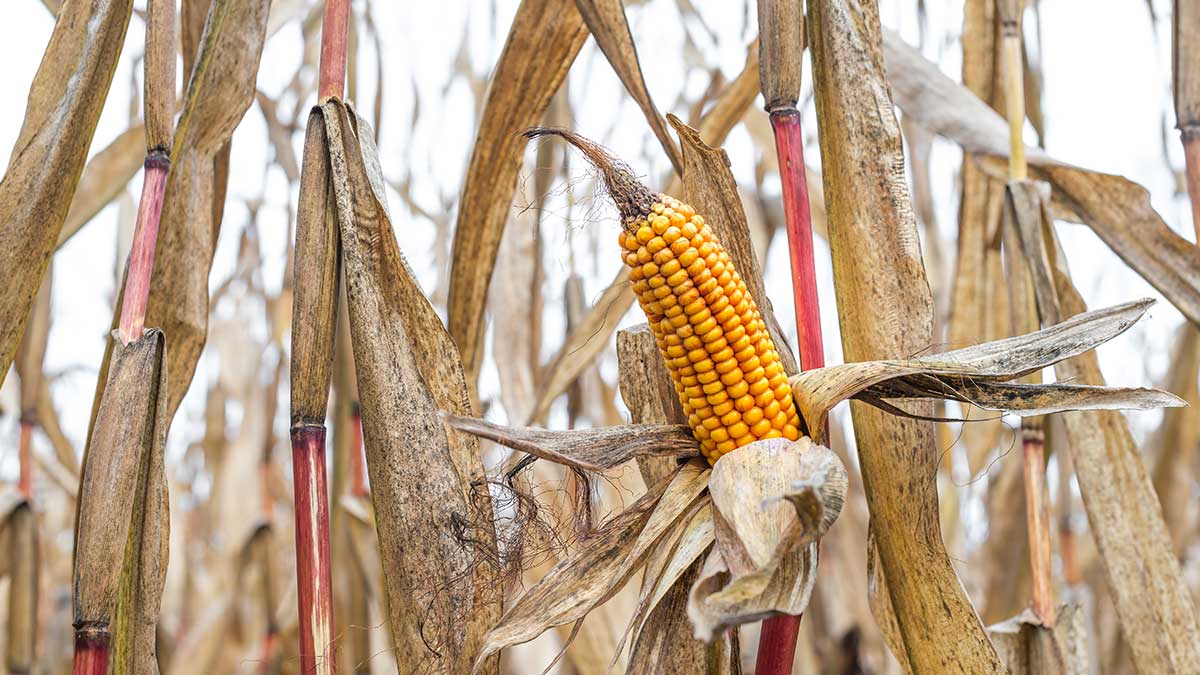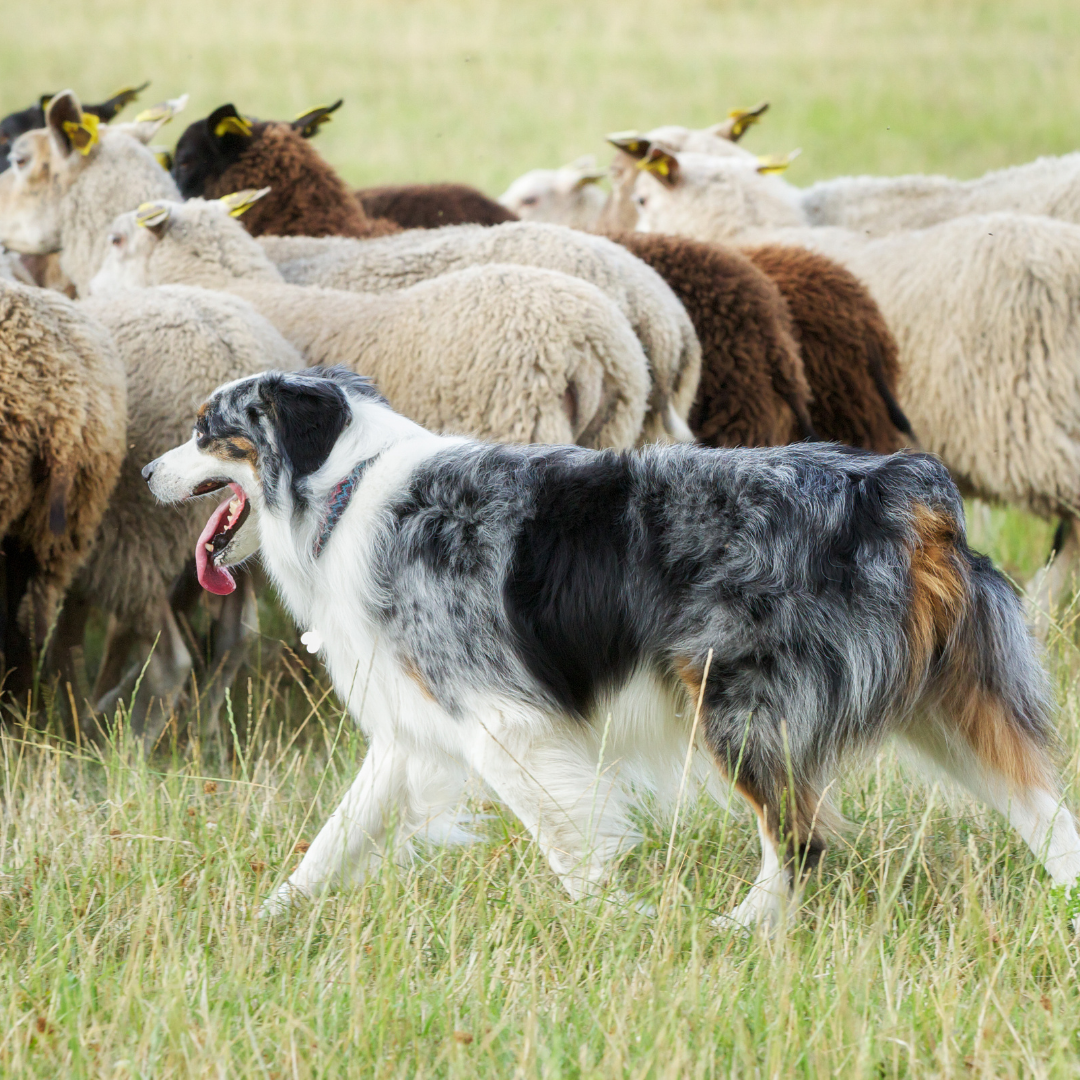Leonard Visinescu


North America

Europe

Latin America

Asia Pacific

Africa

Middle East

Tratamento para a conservação da silagem e uso de adsorventes de micotoxinas são indicados
Além de trazer preocupação com os altos custos, a redução na produção de grãos no país causada pela geada e a seca também acendeu um alerta sobre a qualidade do milho e da soja produzidos. Isso porque as adversidades climáticas, que impactaram diretamente no ciclo de desenvolvimento das culturas, geraram maior exposição a pragas e doenças. Consequentemente, favoreceram o aparecimento de micotoxinas nestes cultivos, substâncias tóxicas produzidas por fungos que, quando ingeridas, podem reduzir o desempenho zootécnico dos animais.
“Esses estresses climáticos pelos quais as culturas passaram interferem e prolongam o ciclo da planta, o que dá mais oportunidade para fungos se desenvolverem. Os níveis de micotoxinas das amostras de rações que serão analisadas a partir de agora, têm a tendência de apresentar maiores valores. Aliás, já temos algumas análises com resultados que nos deixaram surpresos, que anteriormente não acreditávamos que podiam chegar em valores tão altos de contaminação”, alerta o doutor em nutrição de ruminantes Luiz Fernando Silva, gerente de pesquisas da Alltech.
Para superar esses desafios e buscar a máxima eficiência alimentar em bovinos de corte e leite, o especialista orienta o uso de adsorventes de micotoxinas à base da parede interna de levedura.
“Essas soluções vão trazer uma segurança maior para o pecuarista, pois têm alto poder de adsorção. Além disso, têm alta afinidade apenas com as micotoxinas, não interagindo com minerais, vitaminas e outros componentes da ração. Sendo assim, o objetivo é reduzir ao máximo a interferência dessas substâncias tóxicas no organismo dos animais”, destaca.
Outra recomendação são os cuidados na conservação da planta de milho para silagem, por meio de produtos à base de ácido propiônico. “Dependendo de como é feito o armazenamento da cultura no silo, as perdas podem chegar entre 10% a 20%. Com a aplicação de aditivos conservantes para a alimentação animal, essas perdas podem chegar próximo a zero”, afirma. No caso da silagem para bovinos, a aplicação é realizada na parte superior do silo no momento do fechamento, onde há maior perda do material ensilado devido à maior exposição ao ar. Com o uso do ácido propiônico, ocorre redução do pH, o que irá impedir o desenvolvimento de fungos e, consequentemente, reduzir a possibilidade de produção de micotoxinas nesse momento, complementa Silva.
Já na armazenagem dos grãos, procedimento comum em cooperativas, o zootecnista orienta que a solução natural seja utilizada no momento em que o milho está sendo despejado na estrutura do silo. Dessa forma, é possível buscar uma homogenização dessa aplicação, mantendo o ambiente mais ácido e conservando a qualidade dos grãos, que posteriormente serão utilizados para a produção da ração.
Com o objetivo de contribuir para uma nutrição eficiente nesse período de desafios, o especialista indica o uso do Mycosorb A+, adsorvente de micotoxinas de última geração desenvolvido pela Alltech. O produto é composto por uma estrutura complexa de carboidratos insolúveis, que confere maior estabilidade de adsorção nos diferentes pHs ao longo do trato gastrointestinal. Para complementar, a utilização do Mold-Zap, aditivos conservantes à base de ácido propiônico para alimentação animal, também é recomendado.

A native of Slovakia, Dr. Radka Borutova received a doctoral degree in veterinary medicine from the University of Veterinary Medicine in Kosice. Her doctoral thesis was titled "Effects of fusarium mycotoxins on antioxidant and immune status in poultry," and she has since authored 14 peer-reviewed studies about mycotoxins.
Dr. Borutova has more than 12 years of experience in the global animal nutrition industry, where she has served in prominent roles at several leading institutions. Over the course of her career, Dr. Borutova has worked with stakeholders throughout the feed supply chain to better understand the impact of mycotoxins in all primary species and to help establish the most effective strategies for mitigating mycotoxin risks.
Dr. Borutova currently serves as the European technical support manager for the Mycotoxin Management program at Alltech. She has previously served as the chief state counsellor in the Ministry of Agriculture for the Slovak Republic and as a post-graduate student, teacher and member of the Laboratory of Selenium Metabolism at the Institute of Animal Physiology at the Slovak Academy of Sciences.










Mycotoxins are substances that are produced by molds or fungi. Some common mycotoxins that may appear in pet food include aflatoxin, fumonisin, vomitoxin, ochratoxin and zearalenone. Unfortunately, mycotoxins are very stable and often survive heat and other processing steps in pet food production.
While there are stringent policies in place at both the governmental and manufacturing levels regarding mycotoxins, they can be very tricky to monitor, and sometimes, despite these regulations, the presence of mycotoxins in food is inevitable.
The ingredients at the highest risk for containing mycotoxins in pet food are grains, such as corn and wheat, but mycotoxins can be found in grain-free ingredients as well, so every pet food carries some level of risk.
While there are pros and cons to both grain-based and grain-free pet food diets, the best advice we can offer is to thoroughly research the pet food you choose for your dogs and cats. If the food appears or smells suspicious, do not feed it to your pets, and alert the manufacturer immediately.
Protecting your pets from mycotoxins is accomplished most effectively by following a holistic management plan. Using mycotoxin-binding feed additives can be beneficial for any pet food diet, and services such as Alltech’s 37+ and RAPIREAD testing can help to ensure that your pets’ diet is safe from contamination.

Just like humans, aging pets face physiological changes that can affect their cognition, metabolism and more. And just like with humans, more and more research suggests that supporting cognitive function early in life will help prevent age-related changes to the brain.
Aging pet brains are confronted with gene expression changes that can affect how abnormal proteins are handled, the amount of tissue present and even the rate at which new neural pathways are formed.
The good news is that preventing age-related cognitive decline is possible with the appropriate nutrients and in the right environment.
The first class of nutrients to be aware of is antioxidants. More than just a buzzword, antioxidant supplementation can be extremely crucial, especially for older pets, as the body’s ability to deal with damaging free radicals decreases with age.
One of nature’s most powerful antioxidants comes in the form of a trace mineral: selenium. Research suggests that organic selenium can reduce the beta amyloid burden (i.e., abnormal proteins in the brain), minimize DNA oxidation and assist in preventing age-related neuropathologies associated with cognitive decline.
Secondly, omega-3 fatty acids, such as DHA and EPA, have neuroprotective and anti-inflammatory properties that assist in supporting brain health.
Finally, specific functional nutrients — like amino acids and B vitamins — may be able to help increase blood flow to the brain and play a role in overall cognitive development and function.
Las personas interpretan la sostenibilidad de diferentes maneras, por ello, este tema puede generar imprecisiones y divisiones a la hora de abordarlo. A diferencia de otras industrias, el sector agroalimentario tiene la ventaja única de ofrecer soluciones en lo que respecta a reducir las emisiones y apoyar la biodiversidad en nuestros propios entornos.
La alimentación animal es clave para una producción de ganado de leche y de carne rentable y eficiente. Por lo tanto, los productores de alimento balanceado tienen un papel crucial en la forma en que reducen su impacto ambiental –asociado con el sistema alimentario–.
El Covid-19 ha hecho que se ponga en relieve la necesidad de contar con sistemas alimentarios resilientes. Por lo que tenemos que tener en cuenta que la capacidad de producción de alimento balanceado está directamente relacionada con la cantidad de alimentos disponibles para el consumo humano y, de hecho, con la seguridad alimentaria en general. En este sentido, la experiencia de Alltech en 128 países nos muestra que una cadena de suministro de alimento balanceado sostenible y eficiente, es importante tanto para la producción animal a pequeña escala, como para algunas de las integraciones más grandes del mundo.
Un reto creciente para la industria de la alimentación animal es la disputa por las fuentes alimentarias que también están destinadas para el consumo humano. Esto representa un desafío a la inclusión de aditivos para mejorar la eficiencia del rumen y a la búsqueda de ingredientes que solo los rumiantes pueden utilizar. La alimentación animal sostenible ya se está poniendo en práctica y un ejemplo único es la red de 8 laboratorios Alltech IFM™ (modelo de fermentación in vitro, por sus siglas en inglés) en todo el mundo. A través de esta tecnología se puede determinar con mayor precisión la eficiencia de la dieta y las posibilidades para reducir las emisiones y mejorar la rentabilidad de los productores.
Ya no basta solo con afirmar que se cuenta con un sistema de producción animal o con una dieta que tienen una baja huella de carbono. Ahora esto debe estar respaldado por datos repetibles, medibles y verificables. Por lo que la división de Alltech dedicada a prestar asesorías ambientales para mejorar la eficiencia, la rentabilidad y la sostenibilidad de diversos clientes –Alltech E-CO2– ha desarrollado el modelo Feeds EA™; que ayuda a los fabricantes de alimento balanceado y a los ganaderos de todo el mundo a medir y reducir la huella de carbono de sus raciones.
Feeds EA™ mide el impacto ambiental de la producción de alimento balanceado en las plantas de fabricación, mediante la evaluación de los efectos que los distintos ingredientes o mezclas tienen. Esto se determina a través del cálculo de las emisiones de gases de efecto invernadero provenientes de la producción, cultivo, procesamiento, energía utilizada y transporte; que acontecen durante la elaboración del alimento balanceado. Feeds EA™ puede calcular estas emisiones desde una base de datos de más de 300 ingredientes (entre ellos: materias primas, productos derivados de la soya, subproductos o aditivos).
Asimismo, al reducir el desperdicio de alimentos a través de propuestas como la agricultura circular, nuestra industria puede confiar en la capacidad de nuestros sistemas de producción de alimentos para adoptar una utilización más eficiente de los recursos. Esto se observa en prácticas como la suplementación con subproductos para los rumiantes o en cerrar los ciclos de los nutrientes. Al reducir la pérdida y el desperdicio de alimentos en nuestros sistemas de producción animal –de manera verificable– podemos seguir promoviendo con sustento las soluciones sostenibles que ofrece nuestro sector para mitigar el cambio climático.

En los últimos metaanálisis de ganado de leche (Salami et al., 2021) y de ganado de carne (Salami et al., 2020), realizados por Alltech, se ha demostrado que la agricultura de precisión y su aplicación a la nutrición animal reduce el impacto ambiental; gracias a una mejor utilización de nitrógeno en los sistemas de producción de rumiantes.
Así, la inclusión de Optigen® en las dietas del ganado de leche ha demostrado que:
Este dato indica, por ejemplo, que una suplementación con Optigen® podría reducir la excreción anual de nitrógeno en las heces de todas las vacas lecheras de los Estados Unidos en un promedio de 51 509 toneladas métricas de nitrógeno, en función de su producción anual de leche.
En resumen, este enfoque busca proporcionar “la cantidad adecuada de nitrógeno, en el momento preciso y en el lugar correcto”; para ayudar a reducir los residuos de las lecherías. Los resultados de este metaanálisis de ganado de leche también mostraron que la inclusión de Optigen® en las dietas de estos animales, dio como resultado una disminución de las emisiones de dióxido de carbono de alrededor 54 g de CO2-eq/kg de leche. Si esto lo extrapolamos a la producción anual de leche de toda Alemania, por ejemplo, sería equivalente a una reducción de las emisiones de carbono de 1.8 millones de toneladas métricas de CO2-eq. Esta disminución de CO₂ representa el 16% de la meta total de reducción que el gobierno alemán se ha puesto para el año 2030 en el ítem de agricultura.
Un análisis de simulación –basado en los resultados de este metaanálisis– indicó que suministrar Optigen® a 1 000 vacas lecheras podría:
Por otro lado, el metaanálisis de ganado de carne destacó cómo el reemplazo parcial de la proteína vegetal por Optigen® dio como resultado una mejora consistente en la ganancia de peso vivo y en la eficiencia alimenticia. Entre los muchos efectos positivos se observó una ganancia de peso vivo promedio mayor (8%) y una mejor eficiencia de la alimentación (8%) –con la inclusión de ensilaje de maíz, lo que potencia los efectos de Optigen®–.
Un análisis de simulación –basado en estos beneficios– indicó que suministrar Optigen® a 1 000 cabezas de ganado para ganar 200 kilos hizo que:
Mitigar el impacto ambiental de la alimentación animal no supone una reducción de los ingresos para los actores involucrados en el sistema alimentario. Desde las lecherías en los Estados Unidos hasta los 300 millones de vacas lecheras repartidas principalmente en pequeñas explotaciones de la India, Alltech conoce de primera mano cómo las soluciones sostenibles se han convertido en un aspecto “no negociable” en la nutrición animal.
Como es lógico, una producción rentable marca esta perspectiva –y dado que la alimentación animal representa, por lo general, el costo variable más importante en la producción animal; existe también la responsabilidad empresarial de garantizar que mitiguemos la pérdida y el desperdicio de los alimentos–.
La fabricación del alimento balanceado ha sido humildemente la base del sistema alimentario que ha permitido el crecimiento de la población mundial en los últimos 150 años. Ha llegado el momento de reconocer esta contribución única –que también involucra buscar e implantar tecnologías que reduzcan el impacto ambiental de los alimentos de origen animal y apoyan la economía circular–.
Teniendo en cuenta que los esfuerzos de sostenibilidad deben comprender tanto lo ambiental como lo económico, lo invitamos a leer también nuestro artículo relacionado “6 consejos para ajustar el suministro de proteína en la producción de ganado bovino”.


Bones and joints endure constant wear and tear due to activities such as running and jumping. Over time, this can cause problems, making it harder for pets to keep up quite like they used to.
Generally, dogs do not show signs of joint pain and discomfort until an issue has been prevalent for some time. This is especially important to keep in mind with elderly dogs and those with genetic predispositions towards hip and joint problems, such as retrievers, shepherds and most other large breeds. Others, like corgis and dachshunds, are predisposed to spinal issues due to their elongated torsos.
Whether you have a Siamese cat or a Great Dane, pets are tough on their joints. Thanks to their aptitude for running around outside, climbing stairs and leaping across furniture, over time, pets’ joints can become worn and damaged.
As always, an ounce of prevention is worth a pound of cure! Taking a preventative approach to joint health and providing your dog or cat with a daily pet joint supplement can help to protect their joints in the long term and give them more quality years to run, play and enjoy life!
What many pet joint supplements fail to mention is that trace minerals are the building blocks of different components of joints, such as the bone, cartilage and collagen. For example:
Prevent joint disease in your pet by taking these steps:

A pet’s first line of defense against disease is its immune system. The immune system is a network of cells, tissues and organs that work together to defend the body against infectious organisms, such as viruses, fungi and bacteria.
To maintain a properly functioning and effective immune system, optimal nutrition is required. Using nutritional solutions that can help strengthen the immune system and support its development, its functions and any associated cells can help modulate the immune response against specific pathogens or foreign invaders.
Immunonutrients are part of a newer field of study called immunonutrition, which studies the link between nutrition, immunity and the inflammatory response. Immunonutrients can help strengthen your pet’s immune system to increase their disease resistance and overall health.
A few examples of immunonutrients in pet food include nucleotides, amino acids, trace minerals and even gut-supportive compounds, such as pro- and prebiotics.
Utilize the following tips to keep your dog or cat feeling their best:

Pet nutrition and diets are deeply connected to the composition and diversity of the microbiome, which, in turn, plays a significant role in the proper function of the digestive tracts and immune systems of dogs and cats, ultimately affecting their overall health and well-being.
The microbiome is more than just a “hot topic” in scientific research. Every living organism — including humans and pets — have all kinds of microorganisms (such as bacteria, fungi, viruses and protozoa) living both on and within their bodies. These microorganisms live together as communities, and the collection of their genomes is known as the microbiome. Microbiomes are unique to certain habitats, such as the skin, lungs and gut, and can be crucial for pet immune health.
The process of digestion begins when your pet picks up food and starts chewing. Enzymes that are found in saliva begin breaking down the food chemically. The process continues with swallowing, the additional breakdown of food in the stomach, the absorption of nutrients in the intestines, and the elimination of waste. Digestion is critical, not only for providing nutrients, but also for maintaining the proper balance of fluids and electrolytes in the body.
In short, yes. Research has shown that the diet affects each individual person’s digestive system, and the same is true for your pets! The composition and diversity of gut bacteria will change based on the diet. For example, if the diet is high in carbohydrates, gut bacteria that favor carbohydrates will be found at higher levels.
Interestingly, research has also shown that, because bacteria play such a major role in energy metabolism, the microbiomes of lean dogs and obese dogs differ dramatically. The link between the digestive system and weight management in pets may be worth considering, especially with the rising pet obesity epidemic. While more scientific research is warranted, protecting your pet’s gut health may be a proactive step to take in terms of weight management.
Utilize the tips below to help keep your pet’s digestive system in top shape: